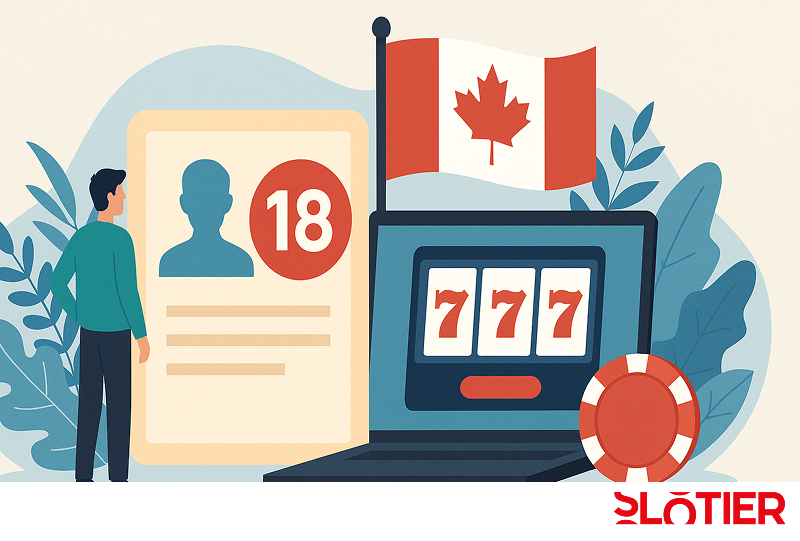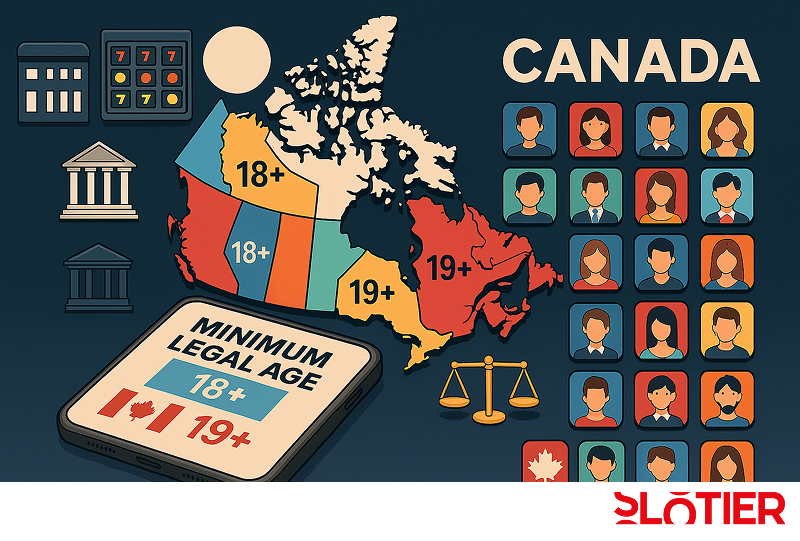What Is the Legal Age for Playing at Online Casinos in Canada

Age restrictions at online casinos are perceived as a formality — a checkbox during registration that is easy to overlook. However, behind this requirement lies not only the law, but also the question of personal maturity, awareness, and attitude towards risk.
There is no single age limit in Canada: the minimum age varies depending on the region. This reflects not so much a difference in rules as an approach to who is considered ready to take responsibility for their actions in a gambling environment, and when.
What is available and what is prohibited before reaching the age of majority
In all provinces of Canada, access to gambling is restricted for minors. In some regions, the minimum age is eighteen; in others, it is nineteen. Until this age is reached, it is not possible to gamble for money, open accounts at online casinos, or use slot machines — even in demo mode — if the platform requires age verification. This restriction is enshrined not only in law but also at the platform level — major operators are required to verify age during registration and account verification.
For example, on the Slotier platform, no user under the required age will be able to register. All control processes are clearly and reliably structured, ensuring compliance with legal norms and protecting players from underage access.
Online casinos are games for money, but not only
It is important to understand that online casinos offer the opportunity to bet real money. Among the many options, there are the best online casino Canada for real money, which are also reliable and secure. In addition to playing for real funds, the Slotier platform offers demo modes where you can try games for free. But even in this mode, the game mechanics remain the same — with elements of chance and continuous reward cycles.
Therefore, even playing without money requires attention and awareness, because familiarity with the mechanics shapes your attitude toward risk when you later move on to betting real money.
Why age depends on the region

In Canada, gambling is regulated at the provincial level. This means that each territory independently determines the age at which participation in online casinos is permitted. In Quebec, Manitoba, and Alberta, access is open from the age of eighteen. In Ontario, British Columbia, and several other regions, it is nineteen.
This difference is due to local laws and historically established regulatory models. Formally, this reflects the approach to maturity and the degree of trust that provinces are willing to place in their residents when it comes to financial decisions.
Responsibility and conscious behaviour
The legal age of admission is only a formal threshold. It does not guarantee maturity or resistance to risk. After the age of eighteen or nineteen, players gain full access to the platform — but with it comes full responsibility for their actions. No one will limit their time, control the frequency of bets, or tell them when to stop. That is why a mature approach to the game, understanding the mechanics, and being aware of internal triggers becomes a key safety factor. Gambling is not only entertainment but also a space where maintaining control is crucial.
Some platforms offer basic self-control tools. Among them is Slotier, which provides functions for limiting playing time, setting limits, and activating notifications. This helps users stay grounded and develop more responsible behaviour in an environment where it is easy to get carried away.
Conclusion
Age filtering in online casinos is not just a legal requirement, but an indicator that the user is entering a zone of complete independence. In Canada, this threshold varies from eighteen to nineteen years of age depending on the province, but the core idea remains the same: gambling is only available to those legally recognised as adults.
However, legal access does not equal readiness. Online casinos require a conscious attitude — even in free modes. Awareness of risks, understanding, and personal discipline play no less of a role here than the age stated on one’s ID.
